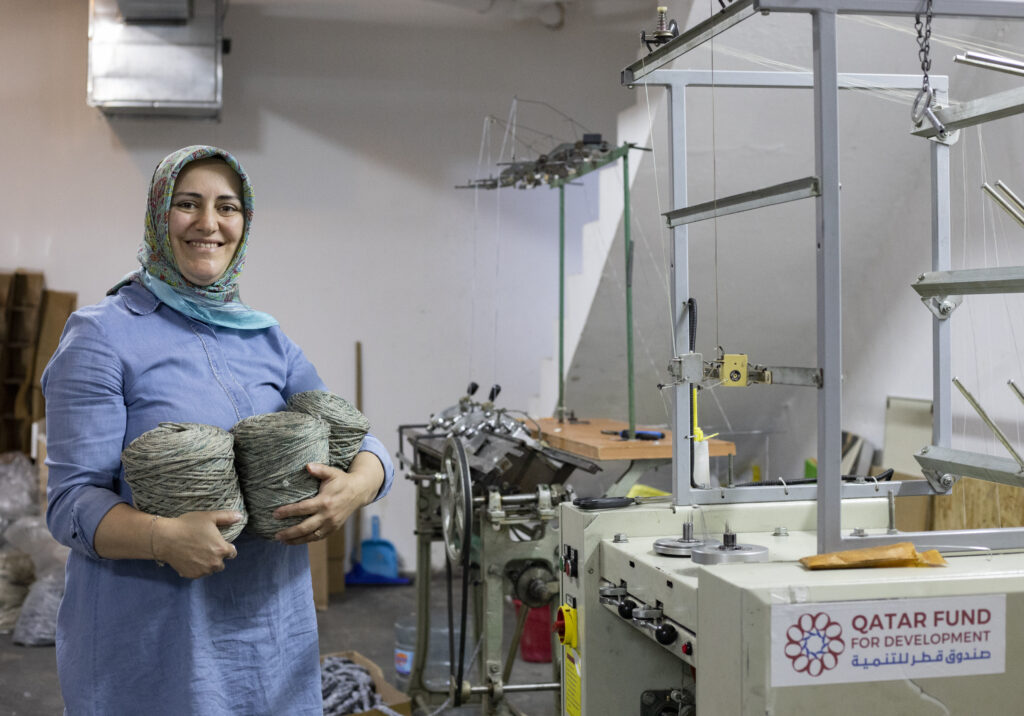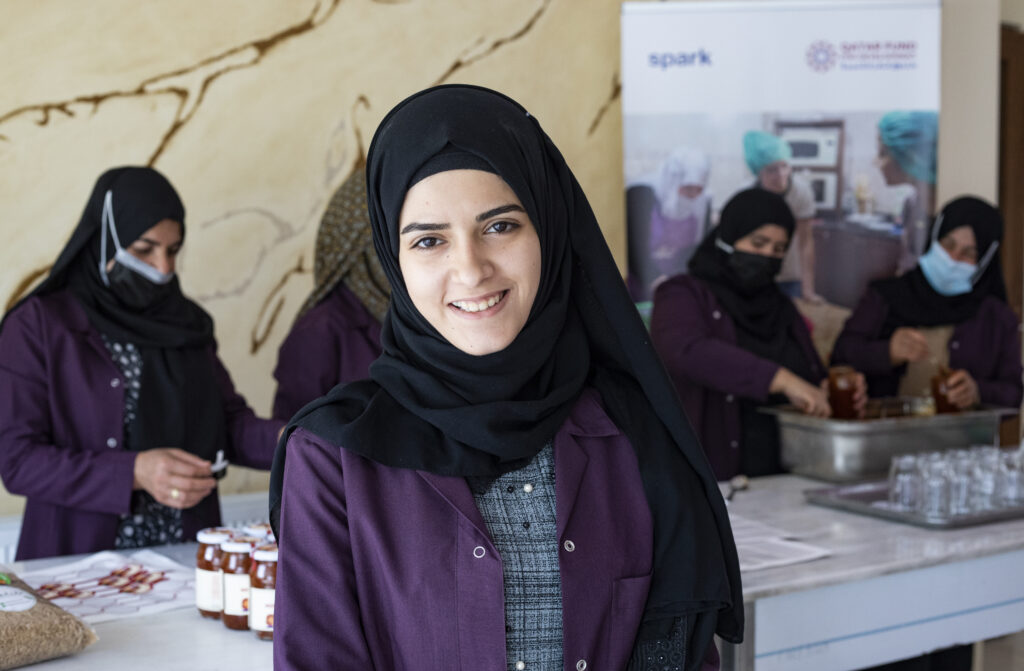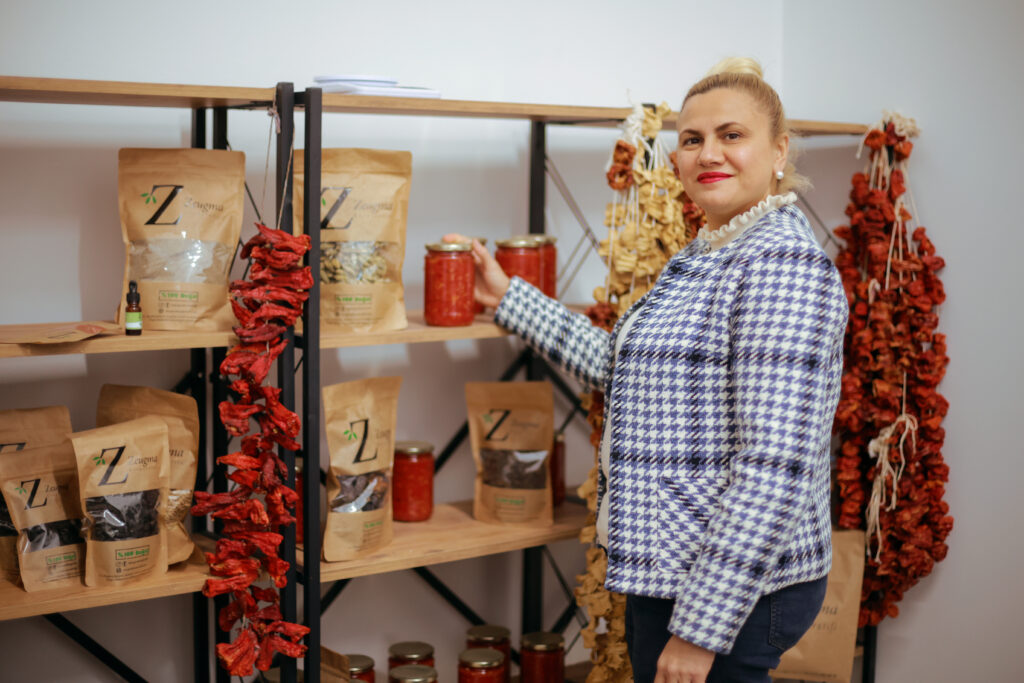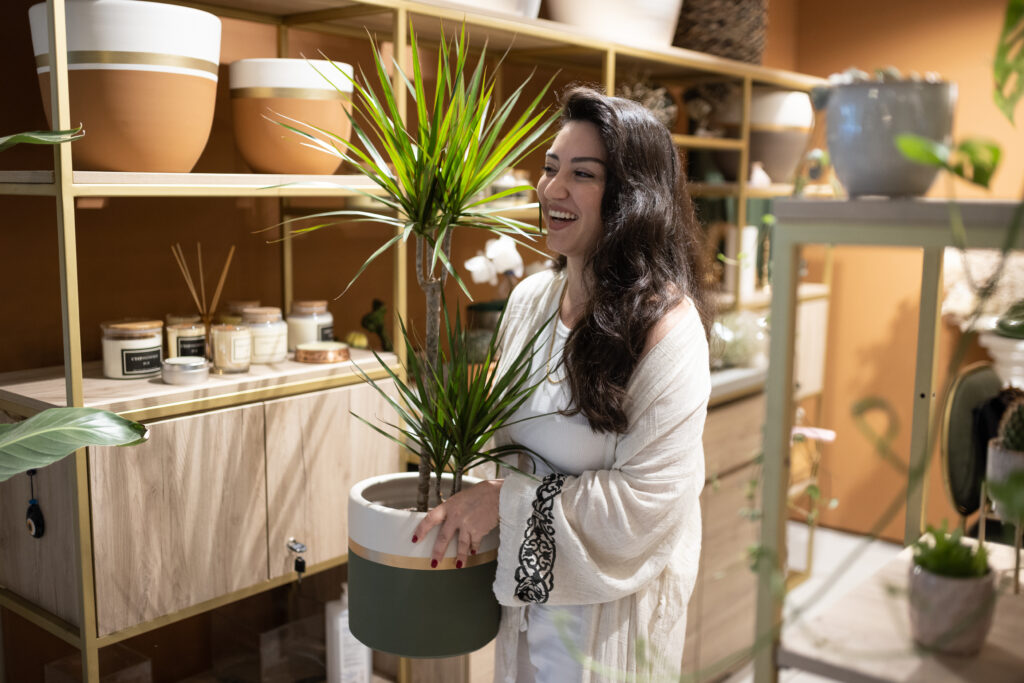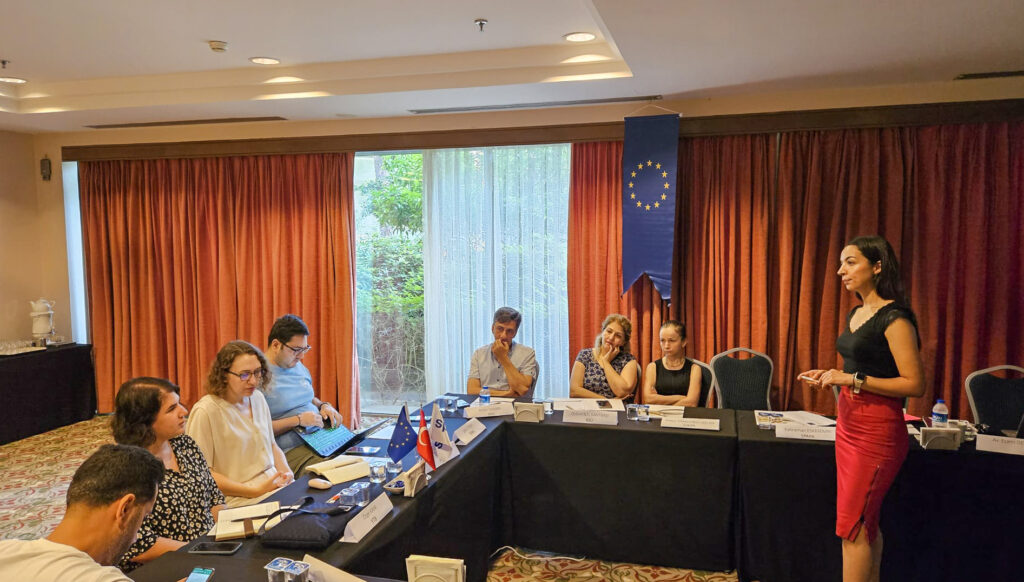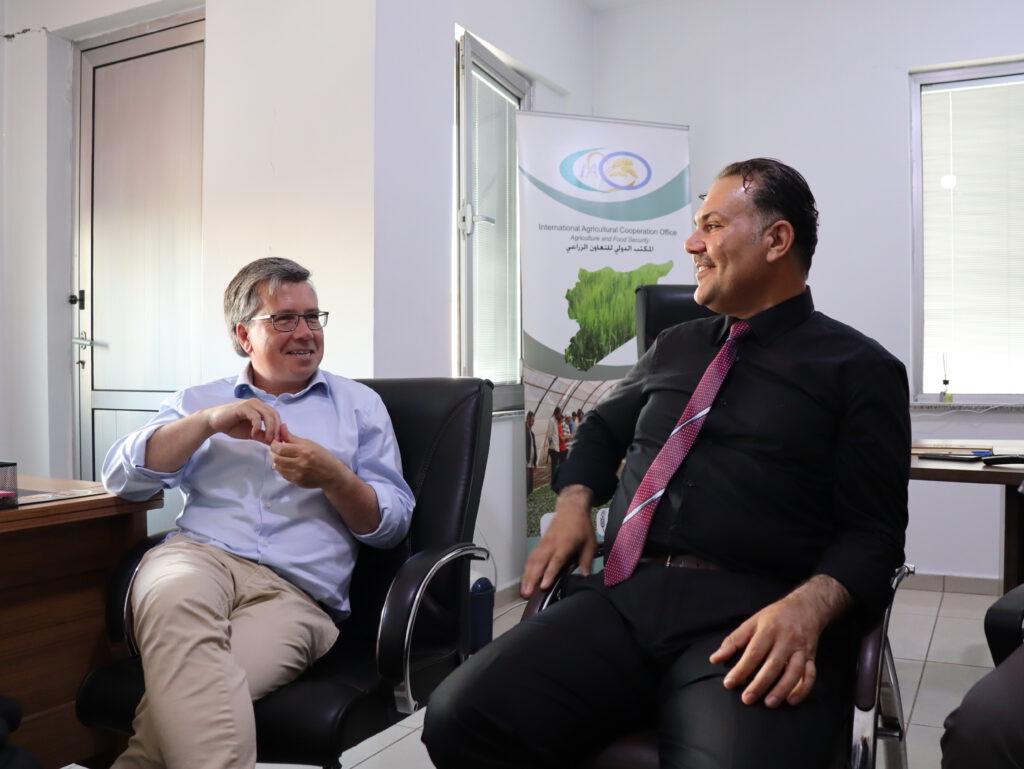Women-led cooperatives: Stronger with E-Commerce

Women-led cooperatives and MSMEs in rural Turkey are supported to digitalise, increasing their sales by at least 10%. Across 19 provinces, 45 women-led cooperatives, including 1,223 Turkish and refugee women entrepreneurs have taken their businesses online.
For business owners everywhere, digitalisation and e-commerce have become vital factors in the success of their companies. Studies have shown that more people are turning to online goods and services, especially since the COVID-19 pandemic. New data from eMarketer found that annual retail e-commerce sales surpassed $4.9 trillion worldwide in 2021.
However, smaller-scale entrepreneurs living in rural areas are often left behind. This is especially true of women-led businesses that lack access to training and services to help grow their companies. In order to support women entrepreneurs in their shift towards digitalisation, SPARK worked with local partners to co-design an inclusive support package for women-led cooperatives and micro, small and medium-sized enterprises (MSMEs) in Turkey.
As part of the Economic Resilience through COVID-19 programme, financed by the Qatar Fund for Development, SPARK and Innovation for Development (I4D), a development-focused social enterprise partnering with the leading e-commerce platform in Turkey, Hepsiburada, across 19 provinces, 45 women-led cooperatives, including 1,223 women entrepreneurs, of which 200 women from refugee or migrant backgrounds, have taken their businesses online.
According to data from the Ministry of Family and Social Services in Turkey, 530 new women’s cooperatives were established in 2021 alone. SPARK’s partner, I4D opened new sales channels for the women entrepreneurs through training and mentorship and helped with the digital transformation to online marketplaces. Cooperatives also enjoyed several benefits offered by Hepsiburada, including commission discounts, advertising and marketing assets, free photoshoots and shipping support.
Duygu Aktaş, the Women Entrepreneurs Coordinator at Hepsiburada, says: “This is the first project of its kind, and it has not been tried before in e-commerce. The project created jobs and gave women entrepreneurs hope, which is the most important thing.”
Comprehensive approach: financial grants and e-commerce
The programme was launched as a response to overcoming the COVID-19 crisis. Each Women-led cooperative that participated in the programme received a financial grant amount of 5000 USD used to safeguard jobs, purchase new machines and equipment and invest in business systems.
Throughout the programme period, businesses received customised coaching sessions and training. Particularly, budget planning and management training are essential for women’s cooperatives to strengthen their e-commerce activities and gain a sustainable structure.
Selam Al Haddoula, at just 21-years-old, is already participating at the Kekik Women’s Cooperative based in Mardin, Turkey. Kekik is a women’s cooperative that gathers women from different cultures with gastronomy skills and transforms the natural products into local flavours under hygienic conditions by making traditional products with unique recipes. Having fled her home country Syria because of the war, integrating into a new society with a new language was not easy.
“With Kekik,” says Selam, “I started to feel included in the community. COVID-19 prevented us from working for nearly eight months. We had doubts about going back to work again. The grant and coaching that Kekik received gave us the hope to continue what we started”.
As well as the immediate financial impact, this project was able to boost rural entrepreneurship and job creation and ensure employment and equal opportunities for women, especially those with refugee and migrant backgrounds. Their inclusion in the Turkish economy is essential, especially in light of recent challenging economic downturns.
Related news
-
![]() Event
EventIGNITE Istanbul Conference Addresses Building Economic Resilience for Youth in Türkiye and Jordan
-
![]() News
NewsOne year on, rebuilding Türkiye’s earthquake-affected economy
On the anniversary of the devastating earthquakes that struck Türkiye in February 2023, SPARK’s support continues to boost economic recovery.
-
![]() News
NewsUrgent earthquake recovery needed in Türkiye
One year later, the challenges persist, underscoring the ongoing need for support. Collaborating with partners and donors, we remain dedicated to…
-
![]() News
NewsCreating employment opportunities for Syrian refugees in Türkiye
This article first appeared in Devex. A partnership between the international NGOs SPARK and Qatar Charity, supported by Qatar…
-
![]() News
NewsEarthquake-Affected SMEs join DAHIL Closing & B2B Event
-
![]() News
News€375,000 in grant support SMEs affected by earthquakes in Türkiye
The devastating earthquakes that struck the southeast provinces of Türkiye in February, not only caused loss of life and property…
-
![]() News
NewsNAMA Competition’s Fourth Edition: Supporting Innovation and Recognising Entrepreneurship in Türkiye
-
![]() Report
Report2022 Annual Report
The Annual Report provides comprehensive information on SPARK’s activities throughout the preceding year. Published with the approval of the Supervisory…
-
![]() News
NewsEnhancing Trauma Awareness and Psychosocial Support in Türkiye’s Earthquake Zone
In collaboration with Hacettepe University, SPARK has developed training for university staff in the earthquake-affected regions, which equips faculty members…
-
![]()
21 new youth-led startups launch in earthquake-affected region
-
![]()
Training Türkiye’s academic staff in Human Rights and Refugee Law
-
![]()
Uniting Turkish and Syrian Youth at Çanakkale Martyrs’ Memorial
-
![]()
SPARK’s Director visits Türkiye’s earthquake-affected provinces: Green and Inclusive Recovery

